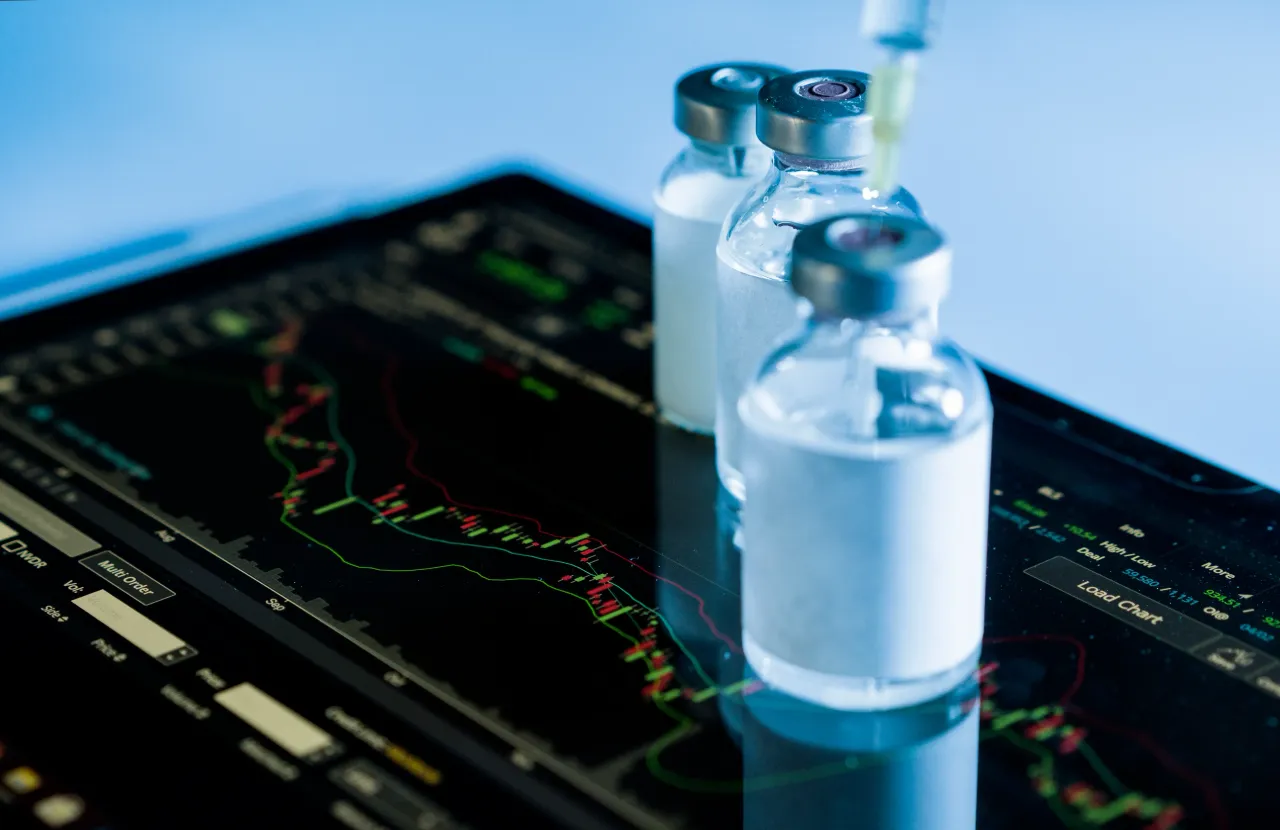Advertisement|Remove ads.
BioCryst Stock Tumbles On Astria Buyout, But Analysts Stay Bullish — Retail Cheers The Move As Long-Term Play

RBC Capital, Jefferies, and TD Cowen raised their price targets on BioCryst after the company announced plans to acquire Astria Therapeutics in a $700 million deal, with analysts calling the sell-off overdone and the combination strategically sound.
BioCryst shares fell 8.8% to $6.42 on Tuesday, marking their fourth straight session of losses and the biggest single-day drop in nearly eight months, before edging up 1% in after-hours trading.
Meanwhile, Astria Therapeutics’ stock jumped 37.1% to $11.61 on Tuesday, its best day in nearly five years and highest level in almost a year, extending gains for a second straight session.
RBC Capital raised its price target on BioCryst Pharmaceuticals to $15 from $14 and kept an 'Outperform' rating, saying Tuesday’s weakness in the stock presents a “compelling buying opportunity.” The firm said its confidence increased following BioCryst’s acquisition of Astria Therapeutics and discussions with management, adding that the deal sets up their franchise even better.
Jefferies also raised its target on BioCryst to $15 from $14 while maintaining a 'Buy' rating. Analyst Maury Raycroft said the valuation reflects a discount due to a crowded hereditary angioedema (HAE) landscape, potential clinical and regulatory risks, and the need for FTC clearance, but added that the acquisition structure, under which Astria shareholders will own about 15% of the combined company, makes competing bids less likely.
Meanwhile, TD Cowen reinstated coverage of BioCryst with a 'Buy' rating and a $30 price target, citing the company’s plan to acquire Astria’s Phase 3 injectable HAE prophylaxis candidate navenibart. The firm said navenibart, a plasma kallikrein inhibitor with strong proof of concept and high key opinion leader interest, is “de-risked.”
BioCryst said on Tuesday that it will acquire Astria for $13 per share, valuing the company at about $700 million in enterprise value. The transaction, approved by both boards, is expected to close in the first quarter of 2026. BioCryst will finance the $8.55-per-share cash portion through a mix of existing cash and a new $550 million facility from Blackstone, with the rest paid in BioCryst stock.
Astria’s navenibart, designed for quarterly or semi-annual injections, could expand BioCryst’s reach in the HAE market by complementing its existing oral therapy. BioCryst CEO Jon Stonehouse said the deal enables the company to “build out a comprehensive portfolio” that meets patient needs regardless of treatment preference.
On Stocktwits, retail sentiment for both BioCryst and Astria was ‘extremely bullish’ amid ‘extremely high’ message volume.
One bullish user said they had grown more positive on the Astria deal, noting that if the acquired asset is approved, it could make BioCryst’s revenue growth sustainable for years, which would help the company’s valuation even if some concerns remain.
Another bullish user said the stock’s performance looked solid despite dilution, arguing that using undervalued shares to acquire a high-potential growth asset like Astria was a smart strategic move and could significantly boost BioCryst’s long-term worth.
While BioCryst’s stock has declined 15% so far in 2025, Astria’s stock has risen 30% over the same period.
For updates and corrections, email newsroom[at]stocktwits[dot]com.










/filters:format(webp)https://news.stocktwits-cdn.com/large_robert_kiyosaki_d28a01cb4b.webp)
/filters:format(webp)https://news.stocktwits-cdn.com/Anushka_Basu_make_me_smile_in_the_picture_b92832aa_af59_4141_aacc_4180d2241ba8_1_2_png_1086e0ed8c.webp)
/filters:format(webp)https://news.stocktwits-cdn.com/large_Bitcoin_and_Ethereum_2b4356b70a.webp)
/filters:format(webp)https://news.stocktwits-cdn.com/large_Getty_Images_976546456_jpg_42ddd4a81d.webp)
/filters:format(webp)https://news.stocktwits-cdn.com/large_Getty_Images_2259655311_jpg_20124bbeb9.webp)
/filters:format(webp)https://news.stocktwits-cdn.com/large_Donald_Trump_451371e34e.webp)
/filters:format(webp)https://news.stocktwits-cdn.com/large_Getty_Images_2228736233_jpg_f3ebe80a4c.webp)